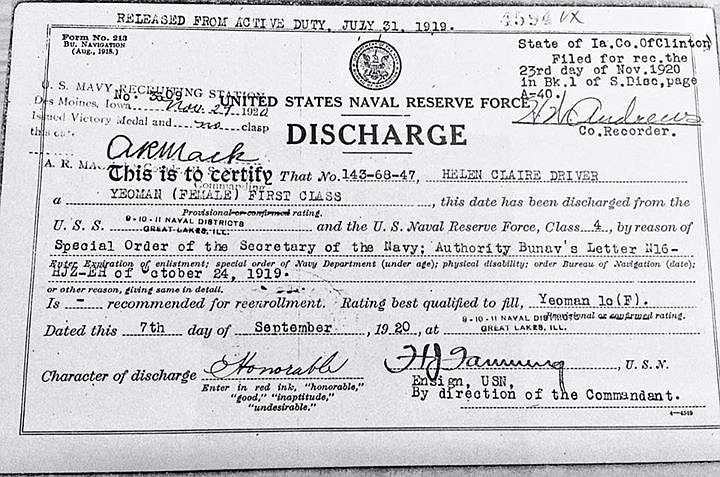If one listened too long or too closely to the country's constantly aggrieved set, one might begin to believe the United States was as torn apart as it has ever been.
Oh, sure, the fringes on our political wings may be far afield, but that's not where most of us live. Most of us go about our daily business, get along with our neighbors and our coworkers, try to raise our families the best we can and attempt to make a difference in our little corners of the world.
That's what, on this Veterans Day, has been so special about the Times Free Press "21-Veteran Salute" over the past week or so. It has included men, women, white, black, old, young, soldiers, sailors, fliers, the battle-scarred and the relatively untouched.
We, as readers, didn't learn their political persuasions because we didn't need to. What set them apart, whether through a draft or through their volunteering, was their military service to the country.
All of them, regardless of which branch of service they joined, raised their right hands and, stating their names, said, "I do solemnly swear (or affirm) that I will support and defend the Constitution of the United States against all enemies, foreign and domestic; that I will bear true faith and allegiance to the same; and that I will obey the orders of the President of the United States and the orders of the officers appointed over me, according to regulations and the Uniform Code of Military Justice. So help me God."
The oath was, and is, a unifying gesture - unifying because the branches of our military service must have unity when defending the country.
Regrettably, Americans could be unified in the armed forces far sooner than they could outside the military.
Both slaves and free blacks, for instance, served on both sides of the Revolutionary War, though largely in segregated units, and every war in the 241 years since. But it would be July 1948 before President Harry Truman signed Executive Order 9981, desegregating all U.S. armed forces.
Yet many of the same black troop members who were now desegregated wouldn't be able to vote - for one reason or another - for another two decades.
Women, likewise, have played roles in every U.S. war since its first, initially serving their husbands' units as laundresses, cooks and nurses, but were not allowed to serve officially until World War I, when 33,000 enrolled as nurses or other support staff and 400 died in the line of duty.
Indeed, Thom Benson, director of external affairs at the Tennessee Aquarium, mentioned to us in passing this week that his grandmother served as a yeoman (F) during World War I and that her uniform had recently been presented to an Iowa county historical society.
We knew about the service of women during World War II but were not aware, outside those who served as nurses, of the varied roles they played in the Great War that was being conducted a century ago. In fact, according to the National Archives, their service commenced then through the loophole of vague language.
The Naval Act of 1916 declared that the reserve force of the U.S. Navy would include, among others, "all persons who may be capable of performing special useful service for coastal defense."
Those persons, Navy higher-ups ultimately decided, could be women, who could be "utilized as radio operators, stenographers, nurses, messengers, chauffeurs, etc. and in many other capacities in the industrial line." Most were designated as yeoman (F), meaning female yeoman.
But those same women couldn't vote until the first presidential election after World War I, 1920, and most were not welcome in the workplace - other than during war - for another four decades or so.
Today, as the newspaper's "21-Veteran Salute" shows, a veteran looks like America, which is a Heinz 57 breed of sexes, races and cultures.
On this Veterans Day, we're thankful not just for the veterans saluted but for all veterans - for their loyalty, their courage, their responsibility, their patriotism and, most of all, their sacrifice.
They portray what we know about America at its heart - that its citizens have more in common than many think, that it is far more unified than given credit for and that it is still a nation fully worth our service.
